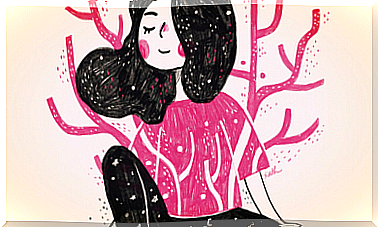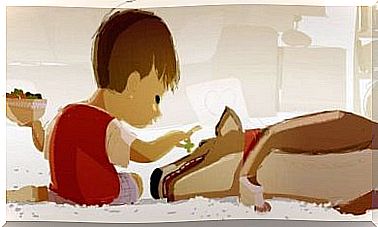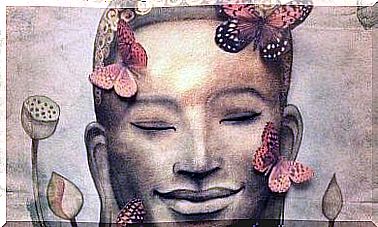Difficult Relationships: Reinterpret Your Story

Humans are social beings. So they wouldn’t be able to lead a healthy life if they don’t bond with other people. We start socializing during childhood and become part of social groups that change and grow over time. Being part of a social group leads to all kinds of relationships, including difficult ones.
Who has not had a difficult relationship with a partner, a relative or a friend? While it’s easy to think that these individuals are just obstacles in your life, it would be more productive to view them as challenges instead.
We cannot deny that life is one big challenge. During your life you have to deal with different phases, cycles and relationships.
When people relate to each other, each with their own baggage, personality, temperament, circumstances and dreams, it is almost like an ambitious psychochemical experiment. While you always hope to get along with others, things don’t always go the way we want them to.

Sparks or fire
When you start a relationship with someone, whether romantic, professional or platonic, you feel a kind of spark. That connection makes you feel alive, loved, admired and respected. Sometimes, though, that spark turns into a fire.
Sometimes it seems like there’s nothing you can do about a difficult relationship. Tension builds and leads to defensive attitudes and arguments.
Another way to deal with difficult relationships
In books and movies, each protagonist has their own dynamic personality, sensitive to the evolution of the plot. Situations will arise and conflicts will arise, usually provoked by the opponent.
These antagonists usually contradict the protagonist’s perspective. They force him into situations where he must use his best resources and skills.
Life isn’t all that different. Play the protagonist in your own life and see if you can identify who your opponents are. What kind of challenges do they represent? How can you overcome those obstacles to become a better person?
Victims or heroes in difficult relationships
There are always two avenues to choose from when it comes to dealing with difficult relationships. You can feel sorry for yourself and play the victim or you can try to find an empowering solution.
It’s not about confronting your opponent. Instead, it’s about analyzing your own behavior to try to figure out what led you to this situation.
Insecurity doesn’t help when it comes to dealing with difficult relationships. To start on the path of the hero of your story, you must first start with self-esteem and self-esteem.
Simple phrases such as “if you keep talking to me like that, I’ll leave,” reflect a strong and brave attitude. Your opponents usually have power over you because they hit you where it hurts the most.
Understanding your reactions
A very important part of your psychological development is understanding, healing and changing your reactions to emotional wounds. Many therapists believe that you subconsciously attract the people who have your parents’ best and worst qualities. There’s a reason for that.
It’s an unconscious response to a deep-seated need to solve problems that you couldn’t solve with your parents. Many people struggle to gain admiration and respect from a critical and strict parent.
If you find that your difficult relationships follow a pattern with authority figures, your opponents may represent a dominant parent who was never satisfied with you.
Therapists often use this protagonist/antagonist game to help their patients with personal development. It is a personal exercise where you find your character and your opponent.
However, unlike the stories in books and movies, your opponents are not demonic or really bad people. They are usually just like you, with their own fears, expectations, emotions, and acquired patterns of behavior. They are vulnerable and weak, just like everyone else.
Teachers of patience
If you decide to follow the path of the hero to deal with your difficult relationships, you will come to regard your opponents as your teachers. You’ll think they’re there to teach patience, courage, compassion, and flexibility, among other things.
In reality, you can use these difficult relationships to improve your character and emotional well-being. Working on those things can help you develop and improve dormant areas. You will also rediscover forgotten or ignored resources.

Powerful questions
Personal coaches use many powerful questions to help their clients. When dealing with difficult relationships, you can ask yourself some good questions. They help you discover your judgment.
If you were to write a book about your own life, analyze the characters you meet along the way. Ask yourself who your opponents are and what makes them so challenging. Ask yourself why you chose the character in question. Normally, antagonists help protagonists evolve and improve in some way.
Another good question is what kind of skills or virtues can help you with your difficult relationship. During coaching sessions, the virtues that therapists often talk about are assertiveness, resilience, courage, compassion, patience, and self-awareness.
If you want to be the author of your own story, you may have to sit down and rewrite the script first. Therefore, look at the situations in your life and your difficult relationships from the perspective of an outsider. This can help you understand what’s going on and give you pointers on how to solve your problems.









